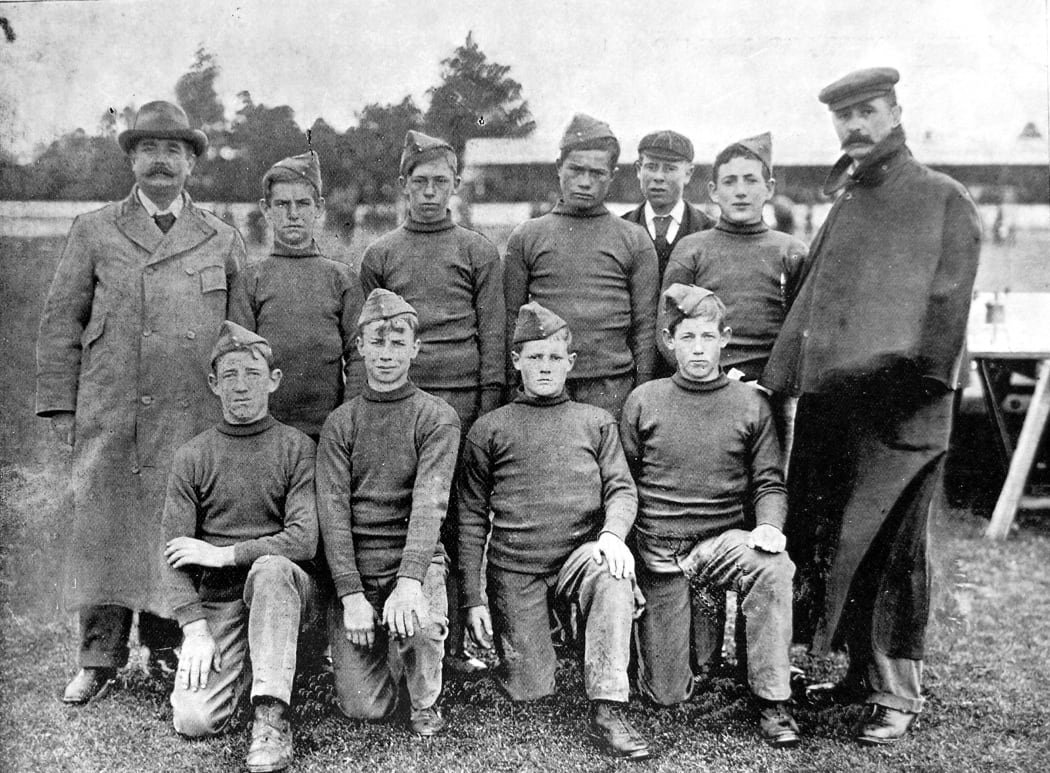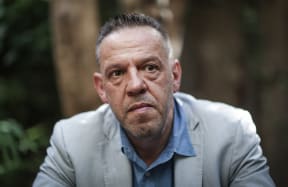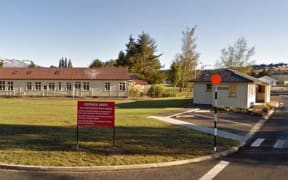Opinion - That sound you hear from the National Party's new youth justice policy could be the familiar whoosh of a historical pendulum swinging.

Youths at the Burnham Industrial School - one of many set up for neglected or delinquent or otherwise difficult children - near Christchurch in 1901. Photo: Selwyn Library / CC BY-NC 3.0 NZ
If re-elected, National is pledging to implement a package of new measures to deal with what it describes as the 150 most violent and recidivist young offenders.
A major part of this would be the establishment of a "junior training academy" based at the Waiouru Military Camp. Judges would be able to send offenders there for the duration of a school year.
Minister of Justice Amy Adams says the training facility would also address literacy and numeracy "issues" - presumably taken to mean providing some kind of remedial education - along with the more disciplinarian aspects of the venture.
The party says all this is all new rope for dealing with wayward youth. In fact, it has been tried before, several times, alternating as it has with more liberal arrangements.
New Zealand's implementation of parens patriae, or "the state as parent", has been such an alternating affair from the start.
It has switched between genuine attempts at reforming "delinquent" kids to administering youth justice with a decidedly more gnarled Calvinist hand, calloused by the imprint of the international social reformers to be sure, but also motivated by a more punitive urge to corral the lives of their wards as by any desire to liberate and dignify them.
The political appetite for bootcamp-type solutions has accordingly waxed and waned.
As one General Brett, a whiskery member of the colony's Legislative Council put it, highly disciplined residential solutions were well suited to "those ill-conditioned and corrupt lads" for whom reformatories can provide a much-needed "terror of the rod".
Practically speaking, too, he said, the idea seemed to offer a way to keep the country's more impressionable delinquents away from the welter of bad new social influences that were deemed to be getting out of control in the wild 1880s.
What was being proposed would eventually be known as industrial schools.
Among the chroniclers who captured what this meant through the eyes of a kid was the maverick Labour MP John A Lee, a one-time resident of the notorious Burnham Industrial School - also a military-style affair replete with geezers in monocles delivering long lectures on the evils of masturbation, according to Lee.
He was sent there aged 14 after being convicted of petty theft - and went on to become a decorated war hero and oratorical gun for hire.
Take away the threat of the rod that Lee was not spared from, and what one is left with is not terribly different from the kind of new "training" that has just been proposed.

David Cohen Photo: RNZ / Rebekah Parsons-King
Of course, the word "training" is itself a bit of a historical giveaway. The state-run residential institutions for children and teenagers that operated here from the late 1950s until the early 1990s were classified as institutions of either "short-term training" or "long-term training" for young inmates.
On the other hand, "community based" ideas have not always worked terribly well, either, which may partly explain the perpetual feeling that the policy settings are never quite working.
A recent case of this would in the eyes of some be the much-ballyhooed yet baffling interagency programme known as Whānau Ora.
Part of the problem is that neither alternative fully gets to the issue of father-absence, which, in the case of boys in particular, is arguably the biggest predictor (along with poverty) of early criminal activity.
Perhaps a better idea might be to dispatch some of the particularly useless dads - or even politicians - to some kind of army-run "academy" rather than their offspring.
David Cohen is a Wellington writer. He is the author of Little Criminals: The Story of A New Zealand Boys' Home.






